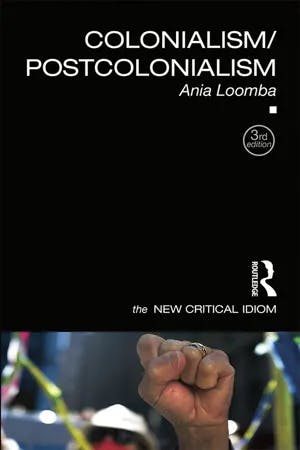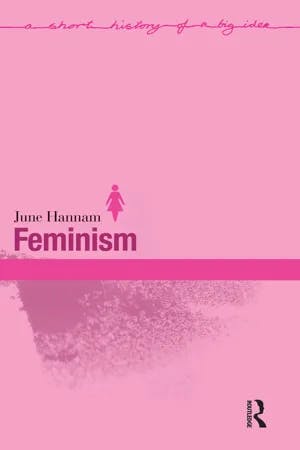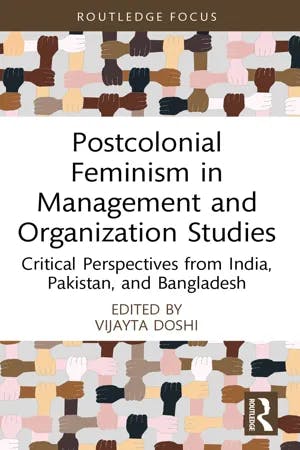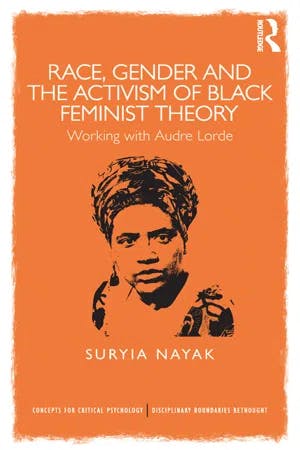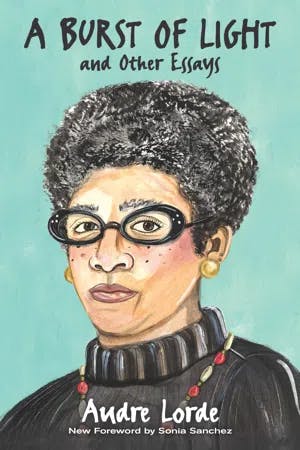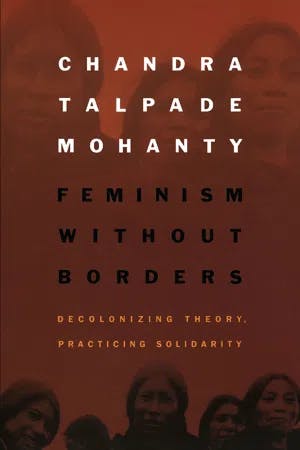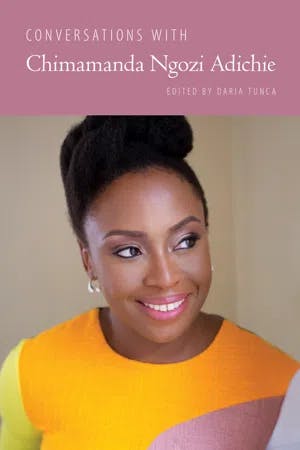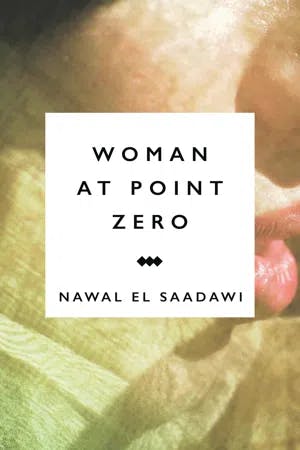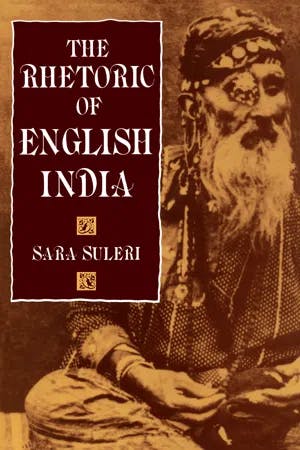What is Postcolonial Feminism?
MA, History (University of Edinburgh)
Date Published: 27.11.2023,
Last Updated: 31.01.2024
Share this article
Defining postcolonial feminism
Postcolonial feminism is a branch of feminism that focuses on gender liberation through the eyes of non-Western women, especially those who live in former colonies. Postcolonial feminism works to incorporate minorities in discourse as it addresses issues such as racism, politics, economics, gender, and the effects of colonialism on non-Western, non-white women in the postcolonial world.
When discussing postcolonial feminism, it is important to understand what postcolonial means and how it relates to the discipline of feminism. Postcolonialism is a theoretical and academic framework that explores the legacy of colonialism and imperialism. According to Ania Loomba in Colonialism/Postcolonialism (2015), colonial domination, or the control of a country and its people by settlers from a foreign territory, negatively impacts those living in colonial territories as these Indigenous peoples are often subjugated by foreign authorities, leaving the people of these territories feeling misrepresented and voiceless for generations. Loomba writes,
It has been suggested that it is more helpful to think of postcolonialism not just as coming literally after colonialism and signifying its demise, but more flexibly as the contestation of colonial domination and the legacies of colonialism. Such a position would allow us to include people geographically displaced by colonialism such as African-Americans or people of Asian or Caribbean origin in Britain as ‘postcolonial’ subjects although they live within metropolitan cultures. It also allows us to incorporate the history of anti-colonial resistance with contemporary resistances to imperialism and to dominant Western culture. (2015)
Ania Loomba
It has been suggested that it is more helpful to think of postcolonialism not just as coming literally after colonialism and signifying its demise, but more flexibly as the contestation of colonial domination and the legacies of colonialism. Such a position would allow us to include people geographically displaced by colonialism such as African-Americans or people of Asian or Caribbean origin in Britain as ‘postcolonial’ subjects although they live within metropolitan cultures. It also allows us to incorporate the history of anti-colonial resistance with contemporary resistances to imperialism and to dominant Western culture. (2015)
Loomba goes on to explain that within anti-colonial discourse, feminism plays a major part in highlighting women and those who struggle under colonial rule. Feminism assists in highlighting those who are often displaced in society and who seek representation, challenging colonial ideas:
Both women and colonised peoples functioned in economies which rested on their labour, and both were subject to ideologies which justified or obscured this exploitation. So both feminist and anti-colonial movements needed to challenge dominant ideas of history, culture and representation. They too questioned objectivity in dominant historiography, they too showed how canonical literary texts disguised their political affiliations, and they too broke with dominant Western, patriarchal, philosophies. (Loomba, 2015)
Ania Loomba
Both women and colonised peoples functioned in economies which rested on their labour, and both were subject to ideologies which justified or obscured this exploitation. So both feminist and anti-colonial movements needed to challenge dominant ideas of history, culture and representation. They too questioned objectivity in dominant historiography, they too showed how canonical literary texts disguised their political affiliations, and they too broke with dominant Western, patriarchal, philosophies. (Loomba, 2015)
Anti-colonial and feminist theorists are interested in enlightening others on the struggles between the oppressors and the oppressed. These theorists illustrate how this conflict becomes a conflict of culture, as Western influences seek to strip Indigenous people of their language, identity, and humanity through total domination. Postcolonial feminism explores how this domination further impacts non-Western women. Postcolonial theory is discussed in further detail in the study guide on postcolonialism.
History of postcolonial feminism
Feminism encompasses a wide range of ideologies and discourses related to women’s impact on sociology, history, economics, politics, culture, and society. According to June Hannam in Feminism (2014), feminism is ultimately a set of ideas that embrace the notion that women are equals to men, with their own free will and independent thought:
[…] the term feminism will be used to describe a set of ideas that recognize in an explicit way that women are subordinate to men and seek to address imbalances of power between the sexes. Central to feminism is the view that women’s condition is socially constructed, and therefore open to change. At its heart is the belief that women’s voices should be heard – that they should represent themselves, put forward their own view of the world and achieve autonomy in their lives. (2014)
June Hannam
[…] the term feminism will be used to describe a set of ideas that recognize in an explicit way that women are subordinate to men and seek to address imbalances of power between the sexes. Central to feminism is the view that women’s condition is socially constructed, and therefore open to change. At its heart is the belief that women’s voices should be heard – that they should represent themselves, put forward their own view of the world and achieve autonomy in their lives. (2014)
When feminism began to gain traction in the 19th century in the west, the movement focused on women’s rights, especially women’s right to vote, hold public office, be educated, work, have equal pay, own property, and equality within marriage. As feminism grew in popularity in the 20th and 21st centuries, the movement began to focus on other issues concerning abortion and reproductive rights, dismantling traditional gender roles in society, incorporating gender-neutral language in common parlance, and sexual harassment and violence indicated in the MeToo movement. The history of the feminist movement can be categorized into four waves that reflect on these issues. You can learn more about the history of feminist theory in our Waves of Feminism - First to Fourth Wave study guide.
However, often lost in all this vital change in society were the voices of minority women as the movement focused primarily on European female voices instead of Brown, Black, Asian, and Indigenous voices. Therefore, in the 1980s, during the third wave of feminism, feminist theorists sought to critique feminists in developed countries, addressing the fact that universalizing mainstream feminist ideas negates the experiences of those living in non-western areas of the world. Postcolonial feminist theorists often analyze how colonial influences over the centuries have impacted the culture and customs of Indigenous people and how these Indigenous people ultimately view themselves. Prominent theorists in this field include Elizabeth Cook-Lynn, who penned the article "Who Stole Native American Studies?", Cutcha Risling Baldy, who contributed to We Are Dancing for You (2018), and Cheryl Suzack, who co-edited Indigenous Women and Feminism: Politics, Activism, Culture (2011).
Postcolonial feminism embraces not only female identity and autonomy but also inclusivity in society. As noted by Vijayta Doshi in Postcolonial Feminism in Management and Organization Studies (2023), in essence, postcolonial feminism takes apart the oppressive forces that hinder women and those who come from minority backgrounds, embracing diversity:
Postcolonial feminism is a way of knowing that brings together feminist (gender, class, color, race, and religion) and postcolonial (subalternity, Third world woman/subject, West and the Rest) concerns […] Postcolonial feminism attends to local feminist issues in postcolonial contexts, giving equal importance to the feminist phenomenon of interest as well as its colonial history and culture. Postcolonial feminist apparatuses enable creative and sensitive ways of doubling the force of dismantling oppressive historical and cultural structures. (2023)
Vijayta Doshi
Postcolonial feminism is a way of knowing that brings together feminist (gender, class, color, race, and religion) and postcolonial (subalternity, Third world woman/subject, West and the Rest) concerns […] Postcolonial feminism attends to local feminist issues in postcolonial contexts, giving equal importance to the feminist phenomenon of interest as well as its colonial history and culture. Postcolonial feminist apparatuses enable creative and sensitive ways of doubling the force of dismantling oppressive historical and cultural structures. (2023)
Postcolonial feminism acknowledges differences among groups of women and steers away from what it perceives as the Western feminist notion of solely focusing on the resistance against sexism. For example, Gayatri Chakravorty Spivak, who penned the 1985 essay "Can the Subaltern Speak?" illustrates the plight of women from former colonies, indicating that these women are doubly oppressed and left voiceless, particularly in academic discourse. For postcolonial feminists, feminism must reach beyond resistance against sexist oppression and relate gender issues to wider societal issues like racism and homophobia.
Leaders in the postcolonial feminist movement
Audre Lorde
Alongside Spivak, feminists like Audre Lorde are often associated with the creation of postcolonial feminism and Black feminism. Lorde focuses on racism and gender liberation through the lens of postcolonial feminism, yet she also reflects on the experiences of Black women specifically through dialogue within Black feminist discourse. In her 1984 essay, “The Master’s Tools Will Never Dismantle the Master’s House,” which can be found in Feminist Postcolonial Theory (2003), Lorde discusses Black oppression and inequality, reflecting on Black identity and how society continues to subjugate Black voices. Lorde indicates that plucking out one aspect of a Black woman’s identity and tying this to all other Black women as a collective whole would be failing Black women. Lorde explains that Western feminism often uses the same tools as the patriarchy to oppress women from developing countries. Lorde indicates that differences in culture should be embraced across all feminist theory and these differences should be seen as strengths, with women across the world supporting each other by embracing these differences.
In Race, Gender and the Activism of Black Feminist Theory (2014), Suryia Nayak explains that Lorde, among other Black feminists, warns against white feminist “mimicry” as a form of assimilation to Western feminism. This mimicry takes away Black identity, as it neutralizes Black women and white women, rejects differences, and makes the collusion with oppression more realized and accepted:
If feminism (or, indeed, any liberation ideology) is a political movement that questions and resists terms of oppression, and if these terms are different for Black and white women, it follows that Black feminism requires a questioning of, and resistance to, different terms than white feminism. (2014)
Suryia Nayak
If feminism (or, indeed, any liberation ideology) is a political movement that questions and resists terms of oppression, and if these terms are different for Black and white women, it follows that Black feminism requires a questioning of, and resistance to, different terms than white feminism. (2014)
As a Black, lesbian feminist, Lorde explains in her essay “I Am Your Sister: Black Women Organizing Across Sexualities,” that society must recognize that women, including lesbians, are at the center of the family; the idea of family with men as the head of household needs to be redefined:
I have heard it said—usually behind my back—that Black Lesbians are not normal. But what is normal in this deranged society by which we are all trapped? I remember, and so do many of you, when being Black was considered not normal, when they talked about us in whispers, tried to paint us, lynch us, bleach us, ignore us, pretend we did not exist. We called that racism […] I have heard it said that Black Lesbians will mean the death of the race. Yet Black Lesbians bear children in exactly the same way other women bear children, and a Lesbian household is simply another kind of family. Ask my son and daughter. (2017)
Audre Lorde
I have heard it said—usually behind my back—that Black Lesbians are not normal. But what is normal in this deranged society by which we are all trapped? I remember, and so do many of you, when being Black was considered not normal, when they talked about us in whispers, tried to paint us, lynch us, bleach us, ignore us, pretend we did not exist. We called that racism […] I have heard it said that Black Lesbians will mean the death of the race. Yet Black Lesbians bear children in exactly the same way other women bear children, and a Lesbian household is simply another kind of family. Ask my son and daughter. (2017)
Within postcolonial and Black feminism dialogue, Lorde reflects on women through the lens of gender roles, sexuality, and racism. Lorde explains that to be a feminist means to be open to differences and change and to take part in political activism in our communities. The ways in which politics, discrimination, gender, race, and class affect women’s identities are discussed further in the study guide on Intersectional Feminism.
Chandra Talpade Mohanty
Alongside Lorde, Chandra Talpade Mohanty was also a key supporter of postcolonial feminism. In 1984, Mohanty penned her essay “Under Western Eyes,” which can be found in her work Feminism without Borders (2003), where she discusses feminism through the eyes of women from developing countries. Mohanty explains that Western women often refer to developing world feminists as a singular entity, which is limiting and misrepresentative. According to Mohanty, women from the developing world are often illustrated as being coerced and subjugated by masculinity without reflecting on cultural differences and the history of these countries. As indicated by Mohanty, Western female voices often overshadow the voices of these women from developing countries as Western women incorporate their own ideologies, opinions, and discussions on the lives of women from underdeveloped countries, making it seem as if life in the West is the norm.
In Feminism Without Borders, Mohanty explains that postcolonial feminists feel they lack representation within feminist discourse which has typically prioritized the experiences of Western feminists, which do not sufficiently reflect their own interests. Mohanty writes,
[...] black, white, and other Third World women have very different histories with respect to the particular inheritance of post-fifteenth-century Euro-American hegemony: the inheritance of slavery, enforced migration, plantation and indentured labor, colonialism, imperial conquest, and genocide. Thus, Third World feminists have argued for the rewriting of history based on the specific locations and histories of struggle of people of color and postcolonial peoples, and on the day-to-day strategies of survival utilized by such peoples. (2003)
[...] black, white, and other Third World women have very different histories with respect to the particular inheritance of post-fifteenth-century Euro-American hegemony: the inheritance of slavery, enforced migration, plantation and indentured labor, colonialism, imperial conquest, and genocide. Thus, Third World feminists have argued for the rewriting of history based on the specific locations and histories of struggle of people of color and postcolonial peoples, and on the day-to-day strategies of survival utilized by such peoples. (2003)
Mohanty encourages women from non-Western countries to embrace agency and autonomy, not through the eyes of Western feminist ideas, but through their own ideas of what it means to be a woman. For Mohanty, the struggles of people who endured colonialism and continue to live in developing countries should be discussed and acknowledged.
Postcolonial feminism in literature
Postcolonial feminist literature has given minority women a platform to express themselves and illustrate their lived experiences as women from countries outside the West. This type of literature focuses on such topics as economics, race, terrorism, immigration, religion, war, and decolonization, among other topics, through the voices of women of color. The following two novels are examples of postcolonial feminist literature as they explore a variety of themes ranging from gender to war to free will.
Half of a Yellow Sun
Chimamanda Ngozi Adichie’s Half of a Yellow Sun (2006) is an example of postcolonial feminist literature. The novel takes place in Nigeria, where Adichie herself is from. The story is set within the looming gaze of the Biafran War, also known as the Nigerian Civil War (1967-1970), as people’s lives are upended. The story is told through the perspective of the characters Olanna, Ugwu, and Richard, detailing how their relationships and lives changed drastically after Biafra’s declaration of secession. The brutality that these characters witnessed and faced themselves is realized as they have to face their own decisions and choices in the war-torn environment they find themselves in.
In an interview with Wale Adebanwi in Daria Tunca’s Conversations with Chimamanda Ngozi Adichie (2020), Adichie explains that she felt compelled to write the novel set during the Nigerian Civil War to share what it would have been like for people who endured atrocities like the civil war and other similar historic events in non-Western countries, events that are too often overshadowed by events in the West:
I set out to write a story that deals with the realities as I understand them [...] I do realize that people have strong ideas of what the narrative of the war should be, but if this novel pushes some out of their complacency, then it is a good thing. I want this book to provoke a conversation. We need to talk about a history of events we too often minimize or dismiss or speak of in meaningless clichés. We need to talk about it honestly. (Adichie)
Edited by Daria Tunca
I set out to write a story that deals with the realities as I understand them [...] I do realize that people have strong ideas of what the narrative of the war should be, but if this novel pushes some out of their complacency, then it is a good thing. I want this book to provoke a conversation. We need to talk about a history of events we too often minimize or dismiss or speak of in meaningless clichés. We need to talk about it honestly. (Adichie)
As a postcolonial feminist author, Adichie is able to shed light on the lived realities of people from non-Western countries, validating the experiences of those who suffered through these events and continue to live with the physical and emotional scars generated from such atrocities. Adichie focuses on the experiences of non-white women in particular, illustrating the women’s experiences of war and politics, but also reflecting on female education and female sexual liberation, all in the wake of the Biafran Civil War.
Woman at Point Zero
Egyptian writer Nawal El Saadawi’s Woman at Point Zero (1977 [2015]) is a postcolonial feminist novel that reflects on the harsh realities of being a woman in her native Egypt. Based on Saadawi’s meeting with a female prisoner in Qanatir Prison in Egypt, the novel is a first-person account of inmate Firdaus who murdered a man and was sentenced to be executed. The novel explores the themes of religion, femininity, incest, female sexuality, sex work, and physical and emotional abuse. It brings to light what life was like for women in Egypt in the 1970s and the patriarchal systems they fought against.
The novel predominantly explores themes of violence against women, including female genital mutilation. The novel also reflects on Firdaus’s courage as she defends herself against her pimp Marzouk, ultimately killing him when he pulls a knife on her. Though her pimp was abusive, Firdaus explains that prostitution gave her a sense of purpose as she was able to make her own money and make her own life decisions:
A woman’s life is always miserable. A prostitute, however, is a little better off. I was able to convince myself that I had chosen this life of my own free will. The fact that I rejected their noble attempts to save me, my insistence on remaining a prostitute, proved to me this was my choice and that I had some freedom, at least the freedom to live in a situation better than that of other women. (1977, [2015])
Nawal El Saadawi
A woman’s life is always miserable. A prostitute, however, is a little better off. I was able to convince myself that I had chosen this life of my own free will. The fact that I rejected their noble attempts to save me, my insistence on remaining a prostitute, proved to me this was my choice and that I had some freedom, at least the freedom to live in a situation better than that of other women. (1977, [2015])
Saadawi reclaims the outdated idea that women can be manipulated easily and are merely controlled by the patriarchy. Though Saadawi explores the theme of female subjugation, she also illustrates a woman who was able to pave her own destiny and live as freely as she could as a woman in Egypt, using her own body as a form of rebellion.
Critiques of postcolonial feminism
Though supported by many feminist scholars, postcolonial feminism has encountered criticism from some feminist circles. Some Western feminists argue that the feminist movement loses power when women are broken down into smaller groups to address the diversity of individual women. For these feminists, focusing on these smaller groups makes the movement appear divisive, which they fear will in turn cause the movement to become less united and less influential. Scholar Chilla Bulbeck reflects on this critique even further in Re-orienting Western Feminisms (1997), where she conducts a wide-ranging exploration of what life looks like for women of color in various parts of the world.
There is also the issue of representation. As indicated in Ien Ang’s essay “‘I’m a Feminist but … “Other” Women and Postnational Feminism,’” some feminist scholars question whether or not women from one part of the world can speak on behalf of or reflect on women from other parts of the world:
If speaking in the name of the other is no longer politically acceptable, how then should the other be represented? Or should white feminists refrain from representing ‘other’ women at all? Would the problem be gradually solved if more ‘other’ women would start raising their voices and presenting ‘their’ points of view? Here again, the implicit assumption is that a diversification of discourse would eventually lead to a broader, more inclusive representation of ‘all’ women. However, what implications the resulting contestatory discourses can and should have for feminist politics remain glaringly unresolved. (Ang, in Feminist Postcolonial Theory, 2003)
Some feminist scholars believe that postcolonial feminism might become ethnocentric, as postcolonial researchers and writers might focus on one culture and refrain from reflecting on people from other parts of the world. As Bhikhu Parekh explains in Ethnocentric Political Theory (2019), “A multiculturally insensitive feminism can unwittingly end up frustrating the very cause it espouses,” indicating that feminists must be open to understanding all cultures from within without passing judgment. People also interpret colonialism in different ways, as some postcolonial feminists might reject all colonial advances while others might accept some colonial changes as being beneficial in these colonial territories. Overall, generalizing colonialism and postcolonialism might become problematic.
According to a critic of postcolonial feminism, Sara Suleri, in The Rhetoric of English India (2013), one aspect of postcolonial feminism she takes issue with is her is the idea that this form of feminism might shroud women in a “mystery” narrative, where women are perceived as being misunderstood or unreachable through a colonial context. Suleri writes,
[...] the tendency of subsequent criticism frequently fails to register the implications of his reading: instead, current discourse—in its often unscrupulous conflation of the issues of race, class, and gender-trends to replicate the Orientalist desire to shroud the East in a “female” mystery. The common language of imperialism thus perpetuates itself through what seeks to be an opposing methodology, suggesting that the continued equation between a colonized landscape and the female body represents an alteritist fallacy that causes considerable theoretical damage to both contemporary feminist and postcolonial discourses. (2013)
Sara Suleri
[...] the tendency of subsequent criticism frequently fails to register the implications of his reading: instead, current discourse—in its often unscrupulous conflation of the issues of race, class, and gender-trends to replicate the Orientalist desire to shroud the East in a “female” mystery. The common language of imperialism thus perpetuates itself through what seeks to be an opposing methodology, suggesting that the continued equation between a colonized landscape and the female body represents an alteritist fallacy that causes considerable theoretical damage to both contemporary feminist and postcolonial discourses. (2013)
For Suleri, assigning a gender to culture could prove to be dangerous, as the colonial gaze could create a narrative in which people in these colonized territories are “othered” and still remain on the periphery of mainstream feminist discourse. Suleri seeks to reclassify the idea of sexuality and dismantle categorization and labels, allowing concepts like sexuality to be discussed outside of its relation to the human body.
Closing thoughts
Postcolonial feminism focuses on those on the fringes of society whose lives are often forgotten or disregarded through a Western lens. This form of feminism brings together themes of racism, economics, politics, and gender issues, among other topics, interweaving these themes with the conversation of the radical liberation of women. With leaders like Audre Lorde and Chandra Mohanty, postcolonial feminism is ushered into mainstream feminist discourse, allowing writers like Chimamanda Adichie and Nawal El Saadawi the chance to enlighten readers on their lived experiences as women of color and what life looks like for people on the fringes of the colonial territories they hail from. Though postcolonial feminism has its fair share of criticism, overall it is a platform on which diversity and inclusivity are promoted and both binary and non-binary people are celebrated, making it an important sect of feminism to study. Scholars are now supporting a more well-rounded discourse related to postcolonial feminism, termed transnational feminism, in which the experiences of immigrants and migrant communities are detailed. You can learn more about transnationalism in our study guide on the subject. Transnational feminism expands on the work of postcolonial feminism, going a step further by bringing to light the journey of those seeking new, more fruitful lives elsewhere without forgetting their unique backgrounds.
Further reading on Perlego
Discrepant Dislocations (2023) by Mary E. John
Subjects That Matter (2019) by Namita Goswami
Gender, Globalization, and Violence (2014) by Sandra Ponzanesi
Black and Postcolonial Feminisms in New Times (2013) by Heidi Safia Mirza and Cynthia Joseph
Local Invisibility, Postcolonial Feminisms (2018) by Laura Fantone
A Daughter of Isis (2018) by Nawal El Saadawi and Sherif Hetata
Boys Will Be Boys (2013) by Sara Suleri Goodyear
Postcolonial feminism FAQs
What is postcolonial feminism in simple terms?
What is postcolonial feminism in simple terms?
What is the difference between postcolonial feminism and Black feminism?
What is the difference between postcolonial feminism and Black feminism?
Who is a leader in the postcolonial feminist movement?
Who is a leader in the postcolonial feminist movement?
What is an example of postcolonial feminist literature?
What is an example of postcolonial feminist literature?
What is a critique of postcolonial feminism?
What is a critique of postcolonial feminism?
Bibliography
Baldy, C. R. (2018) We Are Dancing for You. University of Washington Press. Available at: https://www.perlego.com/book/723957/we-are-dancing-for-you-native-feminisms-and-the-revitalization-of-womens-comingofage-ceremonies-pdf
Bulbeck, C. (2010) Re-orienting Western Feminisms: Women's Diversity in a Postcolonial World. Cambridge University Press.
Chimamanda, A. (2006) Half of a Yellow Sun. Harper Collins.
Cook-Lynn, E. (1997) ‘Who Stole Native American Studies?’, Wicazo Sa Review, 12 (1)
Doshi, V. (2023) Postcolonial Feminism in Management and Organization Studies. Taylor and Francis. Available at: https://www.perlego.com/book/3837600/postcolonial-feminism-in-management-and-organization-studies-critical-perspectives-from-india-pakistan-and-bangladesh-pdf
Goodyear, S. S. (2013) The Rhetoric of English India. The University of Chicago Press. Available at: https://www.perlego.com/book/1853009/the-rhetoric-of-english-india-pdf
Hannam, J. (2013) Feminism. Taylor and Francis. Available at: https://www.perlego.com/book/1545736/feminism-pdf
Loomba, A. (2015) Colonialism/Postcolonialism. 3rd edn. Taylor and Francis. Available at: https://www.perlego.com/book/1563268/colonialismpostcolonialism-pdf
Lorde, A. (2003) “The Master’s Tools Will Never Dismantle the Master’s House,” in Lewis, R. and Mills, S. Feminist Postcolonial Theory. Taylor and Francis. Available at: https://www.perlego.com/book/1601455/feminist-postcolonial-theory-a-reader-pdf
Lorde, A. (2017) A Burst of Light. Dover Publications. Available at: https://www.perlego.com/book/510475/a-burst-of-light-pdf
Mohanty, C. T. (2003) Feminism without Borders. Duke University Press. Available at: https://www.perlego.com/book/1466301/feminism-without-borders-decolonizing-theory-practicing-solidarity-pdf
Nayak, S. (2014) Race, Gender and the Activism of Black Feminist Theory. Taylor and Francis. Available at: https://www.perlego.com/book/1665728/race-gender-and-the-activism-of-black-feminist-theory-working-with-audre-lorde-pdf
Parekh, B. (2019) Ethnocentric Political Theory: The Pursuit of Flawed Universals. Springer International Publishing. Available at: https://www.perlego.com/book/3493633/ethnocentric-political-theory-the-pursuit-of-flawed-universals-pdf
Saadawi, N. E. (2015) Woman at Point Zero. 3rd edn. Bloomsbury Publishing. Available at: https://www.perlego.com/book/2011846/woman-at-point-zero-pdf
Suzack, C. (2011) Indigenous Women and Feminism: Politics, Activism, Culture. University of British Columbia Press.
Tunca, D. (2020) Conversations with Chimamanda Ngozi Adichie. University Press of Mississippi. Available at: https://www.perlego.com/book/1638057/conversations-with-chimamanda-ngozi-adichie-pdf
MA, History (University of Edinburgh)
Hannah Hamill has a PGDE in Secondary Education (History) from the University of Glasgow and a Master’s degree in History from the University of Edinburgh. She also received a Bachelor’s degree in English from Belmont University. Her research interests include The Troubles in Northern Ireland, Medieval Britain, the American Civil War, and immigration to the southern United States. Her dissertation examined loyalist and republican women’s involvement during The Troubles.

